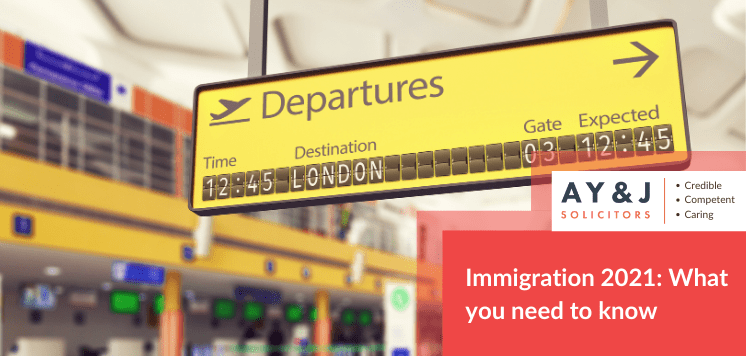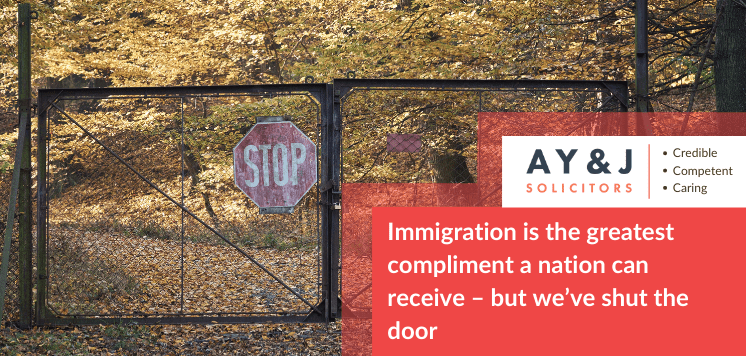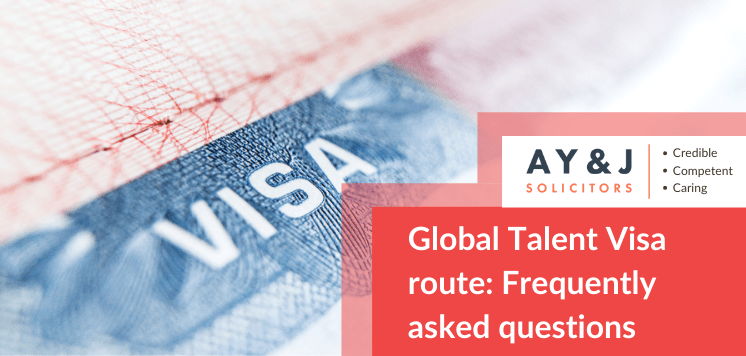Disclaimer: The information in this blog is accurate as of its publication date. Any updates after that date are not reflected here.
We’ve all seen the govern advertisements. The clock is ticking, we are told. From January 1, 2021 businesses that deal with Europe will have to follow new rules. This is just part of the story however, because the changes include new immigration legislation that applies not only to those who trade with Europe, but also to those who employ any overseas workers. This new immigration framework means Brexit will not just affect those who import and export goods and services internationally, it will also affect smaller local businesses which employ personnel.
The new system was developed because, from January 2021, the free movement of people to the UK from Europe ends, which means that all migrant workers will be subject to the same rules. Previously British businesses were free to employ workers from EU countries with no restrictions. The aim of the system, according to the government, is to create a level playing field for all migrant workers and to make it easier for UK businesses to employ the ‘brightest and best’ talented workers from abroad.
It’s important for small businesses to note that the new immigration legislation does not allow for unskilled personnel. This will impact those businesses that have relied on cheaper EU labour. Businesses have warned that this omission will led to manpower shortages in some key sectors such as care and hospitality. The government thinking behind the decision is that native workers will be able to fill these positions.
The new rules, under which visas to work in the UK will be issued, follow a points-based system. To qualify for a visa, potential migrant workers who want to move to the UK must meet certain criteria, each of which is scored. For example, having a job offer for a skilled position from an approved employer will earn 40 points. Being able to speak English gets 10 points. A salary offer of at least £25,600 gets 20 points. The magic number to reach before a visa is issued is 70.
The most important thing to consider right now for businesses which employ, or plan to employ, overseas workers from 2021 is that you need to be on the government list of approved visa sponsors. That means applying to the Home Office. Only those on the approved list to issue Certificates of Sponsorship (CoS), and migrants cannot work in the UK without one. So, in the first instance, employees should check the government website and apply, or contact a reputable visa and immigration specialist to help guide them through the process.
The most recent figures issued by the government show that only a small percentage of UK businesses are on the approved sponsor list. There are just over 32,000. These range from catering firms to architects, healthcare providers and construction businesses.
Another important consideration is the type of position you may need to fill, as only certain roles qualify under the new visa schemes. For example, catering businesses will not be able to employ migrant waiting staff from abroad.
The main type of visa route that most small businesses will be concerned with is the skilled worker visa. This category is a catch-all that applies to workers filling positions classified as skilled. Under the new system, the threshold for a skilled worker has been reduced. Previously it only applied to those with a bachelor’s degree level education or above. It now applies to NQF Level 3, which is the equivalent of an English A level or a Scottish Higher qualification. This should have the effect of opening the skilled worker visa route up to more applicants in a wider range of roles, which could include nursing home managers and IT technicians. The previous quota on the number of visas issued each year has also been removed under the new system, so in theory skilled worker visas are limitless. There is also no longer a requirement to advertise positions for native workers first before they can be filled by overseas workers.
Some specialist digital, scientific and research businesses can also consider hiring individuals who qualify for a Global Talent Visa. Applicants can apply for one of these if they are a leader or potential leader in academia or research, arts and culture or digital technology.
There is also a new category of visa to cover certain roles in the healthcare sector. The health and care visa offers a fast-track entry system to the UK for doctors, nurses and other healthcare professionals. Most low-skilled care workers will not be covered by the scheme however. The visa was introduced to try and ensure that there are enough healthcare workers in the UK and has become particularly important in the past year due to the extra strain placed on the health service by the pandemic. Applicants via this route will still have to meet the relevant skill level and salary thresholds.
The final consideration for small organisations and SMEs is cost. Employers who have previously recruited from overseas, and specifically non-EEA countries, will be aware of sponsorship fees. But for UK businesses which have previously used free-movement EU labour, and who are now looking into applying for a Home Office sponsor licence for the first time, the costs need to be accounted for. There are fees associated with all visa routes. Some fees apply to the applicants, others apply to businesses employing them.
For small businesses, the cost of a sponsor licence is £536. There is also a £199 fee for each CoS issued. When a small business sponsors a worker under the skilled worker visa it must also pay an immigration skills charge of £364 for the first twelve months and £182 for each additional six months of the visa. This cannot be passed on to the employee and must be paid in full at the time of the application. If the worker leaves or is made redundant before the visa expires business can apply for a partial refund.
Workers are required to pay an application fee depending on how many years they plan to work in the UK, and whether their job is on the shortages skills list, which includes vets and web designers. If their skills are not listed, the fee is between £610 and £1,408 per person. They must also pay a health surcharge of £624 per person per year upon application, which is refunded if the application is unsuccessful. The health surcharge does not apply to those requesting a health and care visa.
Applicants must also show that they have the means to support themselves in the UK, which usually involves having at least £1,270 of available funds.
The benefits of employing migrant workers are wide-ranging and are both economic and practical. Generally, migrants have a desire for success and a respect for hard work, so while there are financial and logistical considerations small businesses need to make before they decide to take advantage of the global skills pool, the rewards can be vast.









